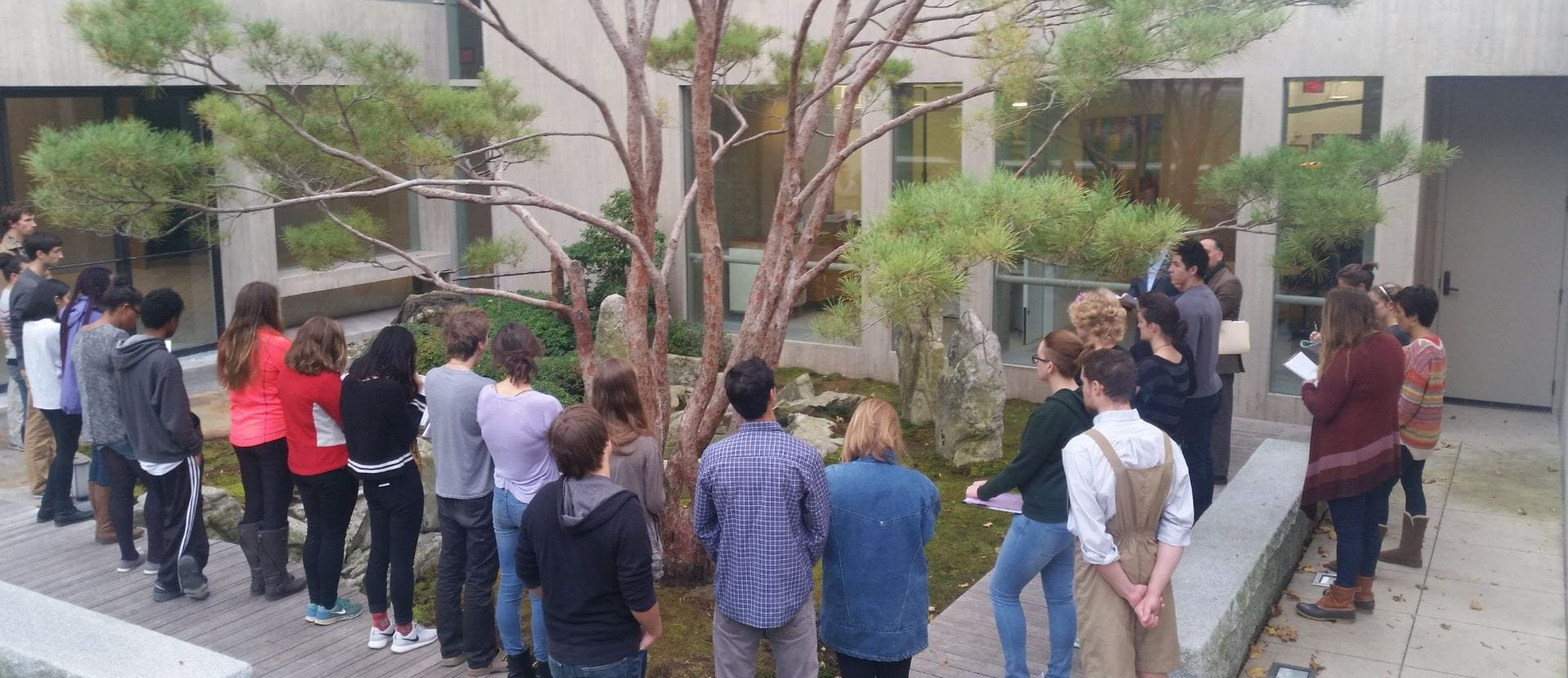Courses

Photo credit: Anna Brown
Professor Kassam believes that students are not only consumers of information but producers of insights.
Courses Ways of Knowing: Indigenous and Place-Based Ecological Knowledge – NTRES 3330/AIIS 3330/AMST 3330 – Graduate Section NTRES 6330 Indigenous Issues in Global Perspectives – AIIS 1110/AMST 1601 Global Seminar: Building Sustainable Environments and Secure Food Systems – FDSC 4800/IARD 4800/NTRES 4800 Socio-cultural and Ecological Role of Diversity – NTRES 7330 |  Photo credit: Chris Callanan |
Below, is a description of two courses in which Professor Kassam implements his conceptual framework of Pedagogy of Hope.
1. Ways of knowing: Indigenous and Place-based Ecological Knowledge (NTRES/AIIS/AMST 3330 and NTRES 6330)The fundamental premise of this course is that human beings are embedded in their ecological systems – living with and within their habitat. The ways of knowing course (1) presents a theoretical and humanistic framework through which to understand generation of ecological knowledge; (2) examines processes by which to comprehend Indigenous and place-based knowledge of natural resources, the non-human environment, and human-environment interactions; and (3) reflects upon the relevance of this knowledge to climatic change, resource extraction, food sovereignty, medicinal plant biodiversity, and issues of sustainability and conservation. The course asks specific thematic questions based on the required readings. Here are some examples of provocative questions:
- What if conservation of biodiversity depends on conservation of cultural diversity?
- What if expertise is not sufficient for solving the major problems of the twenty-first century and difference (another way of thinking) is just as, if not more, important?
- What if knowledge is not in your head but in your relations with the environment you inhabit?
- What if small facts hint at big truths and the particular leads to the universal?
- What if time is unique experience, flexible, and relational?
- What if plants take care of humans, and humans, in turn, take care of plants?
- What if self-determination depends not only on political power, but more importantly, on knowledge of your habitat (ecosystem)?
- What if building a home is just as “natural” as a spider building a web and cities are just as “natural” as ants living in colonies?
- What if being independent means being connected to and not isolated from one’s environment, friends, and family?
2. Indigenous Issues in Global Perspectives (AIIS 1110/AMST 1601)
As a part of my joint appointment in the American and Indigenous Studies Program, I teach Indigenous Issues in Global Perspectives in collaboration with my colleagues. We alternate individually teaching the course roughly every two years.In the course, we examine contemporary issues, contexts, and experiences of Indigenous peoples. Students develop a substantive understanding of colonialism and explore in the parallels and differences of its histories, forms, and effects on Indigenous peoples globally. Contemporary Indigenous theorists, novelists, visual artists and historians have a prominent place in the course, highlighting sociocultural and environmental philosophies, critical responses and forms of resistance to neocolonial political and economic agendas, and the fundamental concern for Indigenous self-determination, among other topics. However, Indigenous people have agency. We not only examine the history of victimization of Indigenous peoples through colonial oppression, but also study their response as agents of change in providing alternative paradigms and insights to humanity in the third millennium.Again, I take an interrogative approach, asking specific thematic questions based on the required readings. Here are some examples of provocative questions:
- What if globalization is not new?
- What if religious fanaticism and extreme secularism have the same impact on Indigenous peoples?
- What if culture, which was used to facilitate oppression of Indigenous peoples, is also the means to their liberation?
- What if biological diversity is important to cultural survival?
- What if climate change has a disproportionate impact on Indigenous peoples?
- What if hope is not just a feeling, but requires a rigorous methodology?
